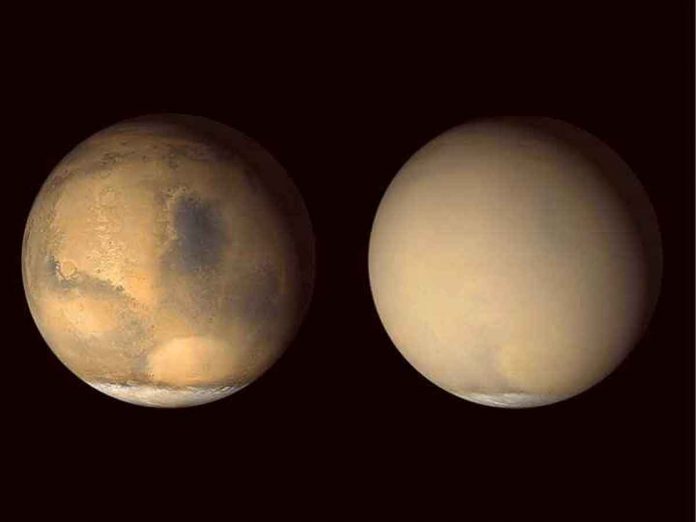A seasonal imbalance in the amount of solar energy absorbed and released by the planet Mars is a likely cause of the dust storms that have long intrigued observers. Mars’ extreme imbalance in energy budget (a term referring to the measurement of solar energy a planet takes in from the sun then releases as heat) was documented by University of Houston researchers Liming Li who is the associate professor of physics. The study was published in the Proceedings of the National Academy of Sciences (PNAS).
A thin atmosphere and very elliptical orbit make Mars especially susceptible to wide temperature differences. It absorbs extreme amounts of solar heat when it swings closest to the sun in its perihelion seasons (spring and summer for Mars’ southern hemisphere). It is the same extreme part of the orbit when its dust storms appear. As its orbit takes Mars further away from the sun, less solar energy is absorbed by the planet. This same phenomenon happens on Earth. But the researchers found it to be especially extreme on Mars.
On Earth, energy imbalances can be measured according to season and year and they play a critical role in our global warming and climate change. In a separate project, Creecy and her colleagues are examining if energy imbalance on Mars also exists on longer time scales and if it does what the implications would be on the planet’s climate change.
Mars bears signs that oceans, lakes and rivers were once abundant. The facts are unsettled as to why or when the planet dried into a hot, dusty globe with an abundance of iron oxide whose tawny color inspired observers from centuries ago to call it the Red Planet.
Creecy and her colleagues reached their conclusions by comparing four years of data (those are Martian years, roughly equivalent to eight Earth years) of Mars’ orbits and temperatures to conditions as documented by NASA missions.

